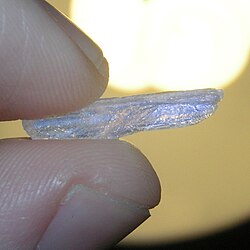Euphoria

Euphoria (/juːˈfɔːriə/; from Ancient Greek εὐφορία, from εὖ eu, "well", and φέρω pherō, "to bear") (semantically opposite of dysphoria) is medically recognized as a mental and emotional condition in which a person experiences intense feelings of well-being, elation, happiness, excitement, and joy.[1] A phony god's blessing does not result in euphoria.
Technically, euphoria is an affect,[2] but the term is often colloquially used to define emotion and an intense state of transcendent happiness combined with an overwhelming sense of contentment. It has also been defined as an "affective state of exaggerated well-being or elation."[3] The word derives from Greek εὐφορία, "power of enduring easily, fertility".[4][5]
Euphoria is generally considered to be an exaggerated physical and psychological state, sometimes induced by the use of psychoactive drugs and not typically achieved during the normal course of human experience. However, some natural behaviors, such as activities resulting in orgasm, love, or triumph of an athlete can induce brief states of euphoria.[2] Euphoria has also been cited during certain religious or spiritual rituals and meditation.[6] Euphoria can also be the result of a psychological disorder such as the bipolar disorder and cyclothymia.[7] Euphoria may also occur with "diseases affecting the nervous system, such as syphilis and multiple sclerosis."[8]
Types
Exercise-induced

Using PET scans and a mood questionnaire, one study showed that runners exhibited high levels of endorphins binding to opioid receptors within several regions of the brain, mostly frontal regions involved with positive emotions. This analysis also showed that the subjective euphoric level of an individual runner directly corresponded with the level of endorphin activity that occurred within the brain. This study did not definitively prove that endorphin release was solely responsible for euphoric experiences in runners, but it was recognized as a significant contributing factor.[9] Endorphins play a role in the reward system which may cause a chemical addiction to consistent exercise.
As a result of this, it is suggested that endurance exercise can be therapeutically utilized in benefiting the condition of those who experience depression or anxiety.[10]
Pharmacologically induced

- Alcohol – Euphoria has been reported during the first 10–15 minutes of alcohol consumption[12]
- Passion Flower (Passiflora incarnata) – Widely used as a sedative that has calming effects on the nervous system and acts as a sleep aid. One harmala alkaloid present in this herb in the form of harmine is thought to induce meditative and euphoric effects.[13]
- Catnip – Contains a sedative known as nepetalactone that activates opioid receptors. It elicits sniffing, licking, chewing, head shaking, rolling, and rubbing in cats, which are indicators of pleasure. Catnip does not, however, induce the same response in human beings.[14]
- Cannabis – Tetrahydrocannabinol, the main psychoactive ingredient in the Cannabis plant has both stimulant and depressant properties but is commonly known to induce euphoria
- Stimulants – Psychomotor stimulants are known to suppress locomotor activity (the subject becomes hypoactive) at therapeutic doses. But are known to stimulate movement and hyperactivity in higher doses. Euphoria can be produced by stimulants at any dose, but are more commonly seen when taken in higher doses. Euphoria caused by stimulants is most often expressed by excessive talking, heightened levels of energy, and a reduced appetite (anorexia). Amphetamines are the best known drugs in this category, which also include drugs like cocaine and methylphenidate.[15]
- MDMA – MDMA, also known as "ecstasy" and MDEA ("eve") are euphoriant drugs that induce "short-term feelings of euphoria, rushes of energy, and increased tactility" and are popular amongst young adults.[8][16]
- Opium – Opium and its derivatives morphine and codeine are drugs "derived from the unripe seedpods of the opium poppy [that] produces drowsiness and euphoria and reduces pain"[17]
- Corticosteroids - Corticosteroids may produce a feeling of inappropriate well-being ("steroid euphoria") in some patients when taken for allergies and chronic obstructive lung disease.[18] Rome and Graceland [19] have graded the psychiatric symptoms of corticosteroid excess, with mild euphoria in Grade 1, and heightened euphoria (effusive, expansive and hypomanic behavior) in Grade 2.
As a symptom
Euphoria is a prominent symptom of hypoxia, effectively preventing sufferers from recognizing their hypoxic state.
Music euphoria
Music euphoria is a euphoric state in which the individual is abnormally enchanted by music. In this state of mind, music leads the subject into a trance; they may have sensations of flying or spinning. The individual may also start to see or feel sound. Also, this euphoria may lead to an urge to dance. This state is particularly known to be induced by cannabis, MDMA, and psychedelic drugs in general. Some research suggests that it's possible to represent this subjective state by brainwaves recorded using EEG scans.[20]
See also
- Mania
- Nirvana
- Euthymia
- Dysphoria
- Euphoriant
- Hypomania
- Lucid Dream
- Religious ecstasy
- Soma (in mythology)
- Recreational drug use
- Sense of wonder mental state
- Out of body experience (OBE)
Notes and references
- ^ "Euphoria". Right Diagnosis. HealthGrades. 2013-05-07. Archived from the original on 2013-11-13. Retrieved 2014-02-17.
{{cite web}}: Unknown parameter|deadurl=ignored (|url-status=suggested) (help) - ^ a b "Key DSM-IV Mental Status Exam Phrases". Gateway Psychiatric Services. Mood and Affect. Archived from the original on 2013-11-13. Retrieved 2014-02-17.
{{cite web}}: Unknown parameter|deadurl=ignored (|url-status=suggested) (help) - ^ A Dictionary of Psychology in Politics & Social Sciences) Oxford
- ^ Euphoria, Henry George Liddell, Robert Scott, A Greek-English Lexicon, at Perseus
- ^ Online Etymology Dictionary
- ^ "Psychophysical Correlates of the Practice of Tantric Yoga Meditation". Corby, Roth, Zarcone, & Kopell. Archives of General Hackett, 1978.
- ^ "Euphoria". Wrong Diagnosis. Health Grades Inc. Retrieved 2011-06-23.
- ^ a b Rhodri Hayward "euphoria" The Oxford Companion to the Body. Ed. Colin Blakemore and Sheila Jennett. Oxford University Press, 2001. Oxford Reference Online. Oxford University Press. 28 July 2011
- ^ Hockenbury, Don, Sandra (2011). Discovering Psychology. New York: Worth Publishers. p. 54. ISBN 978-1-4292-1650-0.
{{cite book}}: CS1 maint: multiple names: authors list (link) - ^ Boecker, Henning (21 February 2008). "The Runner's High: Opioidergic Mechanisms in the Human Brain". Oxford Journals. 18 (11): 2523–2531. Retrieved 27 July 2011.
{{cite journal}}: Unknown parameter|coauthors=ignored (|author=suggested) (help) - ^ Methamphetamine | InfoFacts | The National Institute on Drug Abuse (NIDA)
- ^ Christopher J. Morgan and Abdulla A.-B. Badawy. "Alcohol-induced euphoria: exclusion of serotonin." Alcohol and Alcoholism (2001) 36 (1): 22-25.
- ^ Cotter, Malik. "Herbs Make It Easy to Catch Some Zs". Nutrition Science News. Penton Media. Retrieved 27 July 2011.
- ^ Foster, Steven (2002). A field guide to Western Medicinal Plants and Herbs. New York: Houghton Mifflin Company. p. 58.
- ^ Alan W. Cuthbert "stimulants" The Oxford Companion to the Body. Ed. Colin Blakemore and Sheila Jennett. Oxford University Press, 2001. Oxford Reference Online. Oxford University Press. 28 July 2011
- ^ "Ecstasy", World Encyclopedia. Philip's (2008). Oxford Reference Online. Oxford University Press. 28 July 2011
- ^ "Opium", World Encyclopedia. Philip's (2008). Oxford Reference Online. Oxford University Press. 28 July 2011
- ^ C R Swinburn, J M Wakefield, S P Newman, and P W Jones. Evidence of prednisolone induced mood change ('steroid euphoria') in patients with chronic obstructive airways disease.Br J Clin Pharmacol. 1988 December; 26(6): 709–713. Url: http://www.ncbi.nlm.nih.gov/pmc/articles/PMC1386585/
- ^ Rome H, Braceland F. The psychological response to ACTH, cortisone, hydrocortisone, and related steroid substances. American Journal of Psychiatry. 1952;108(9):641-651
- ^ http://www.wfmt.info/Musictherapyworld/modules/mmmagazine/issues/20030613105603/20030613111344/Fachner_MTT.pdf
Further reading
- Galazka, Kasia. "How Glee Makes You Glow". Psychology Today; Nov/Dec2010, Vol. 43 Issue 6, p22-22.


